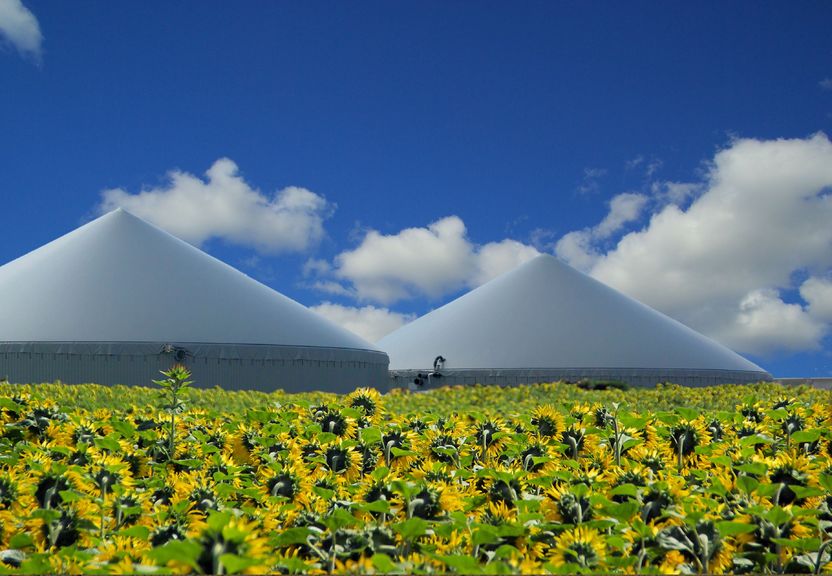
Farming organisations have expressed deep disappointment at this week’s Government proposals to further restrict support for the growing Anaerobic Digestion (AD) sector.
From January 2017, feed-in tariffs for electricity from small-scale biogas plants (under 500 kilowatts) will be cut by a further 27 per cent and the tariff for larger plants will fall to zero (from 7.8p/kWh currently).
This is according to a six-week consultation by the Department of Energy and Climate Change, closing on July 7.
Just over two years ago, the FITs for small and medium AD were 14-15p/kWh, nearly three times the new proposed 2017 rates of 5.5p and 6p/kWh.
There has been no corresponding reduction in capital costs, which have decreased only modestly as the industry has grown.
"Yet again, this Government seems determined to throttle the life out of the emerging renewable energy market," said Dr Jonathan Scurlock, NFU chief adviser on renewable energy.
"After slashing support for the growing solar and biomass industries, this seems like the unkindest cut of all.
"The multiple environmental and soil management benefits from widespread deployment of on-farm AD will be lost, including the huge potential for avoiding farmyard methane emissions from manure and slurry – a bit of an own-goal for DECC, given that this is a powerful greenhouse gas."
The NFU also has serious reservations about the practicability of quarterly reporting of feedstock sustainability and the proposed maximum threshold for inclusion of crop feedstocks.
"This is bad news for the rural economy, and bad for agricultural efforts to tackle climate change," said Dr Scurlock.
"The NFU will work with our members and the AD industry to make a robust response to this consultation."
AD can 'deliver with the right support'
Charlotte Morton, Chief Executive, Anaerobic Digestion and Bioresources Association (ADBA) commented: "This consultation does nothing to address DECC's fundamental lack of ambition for AD and community scale renewables.
"Instead, it proposes restrictions to plant sizes and feedstocks that will make it even harder to deploy viable AD plants using waste, crops or agricultural residues.
"Removing support for new plants above 500kW is completely unjustified and will kill off projects which could otherwise have delivered DECC's objectives while representing good value for money.
"The government needs baseload electricity to ensure energy security, and technologies that reduce emissions from agriculture and waste to meet our carbon budgets.
"AD can deliver all of that, at scale, now - but only with the right support.
"We will be working with our members to put together a strong response to this consultation, and making the wider case for supporting anaerobic digestion to cut carbon, deliver energy security and recycle critical nutrients."
This DECC consultation looks at the generation tariffs for anaerobic digestion (AD) and micro-combined heat and power (mCHP) and sustainability criteria and feedstock restrictions for AD, and closes on 7 July.
